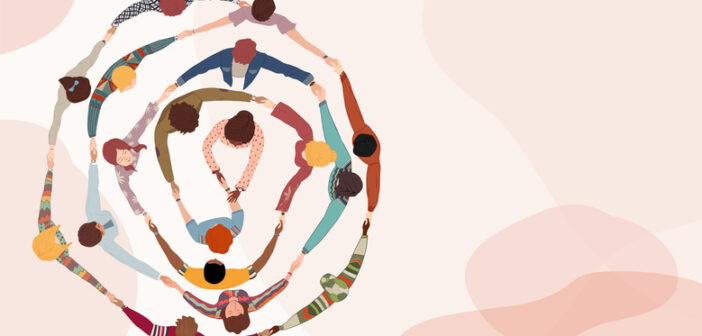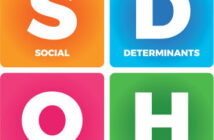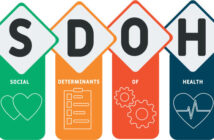BY BOB RALEIGH, PhD, AND DENNIS ROBBINS, PhD, MPH
We have been trying to make sense of one another for thousands of years. This is not an easy task as the human interface is the most complex interface of the most complex network that we have seen. We can build on our incomplete knowledge as science advances. Our knowledge of people has been advanced by our developing taxonomy of demographics. Quickly, we added behaviors to them and tried to infer why we do what we do from their interaction effects. We found that these approaches tell us WHAT people do, but are not so useful for understanding Why people do what they do. We found that by adding insights from the patterns of foundational instincts, we could add motivations to our taxonomies. We could also build in culture with personal distinctiveness to enhance the equation.
Each of us needs to have a legitimate voice to be heard, but we also need to hear the voices and listen to the voices of others. The tribal nature of our culture, especially that of modern work, finds itself today at the intersection between a great promise of reinvention and the last gasps of an aging set of institutions, norms and structures. Following the pandemic, George Floyd and the political wrangling about guns, abortions and government, we have expressed a sudden gush of fury and vitriol for civility. It also showed that we have less assuredness about to deal with these issues as we mine the science to identify better outcomes. This is all part and parcel of the need to transition from a Me World to We World. That requires us to establish a baseline for how we might find similarities and like-mindedness with a fundamental awareness of our distinctive instinctual patterns and worldviews. That is a critical starting point. When we can acknowledge, understand and integrate social determinants of health with this enterprise, we can excel.
A huge differentiator of moving from a world of me to a world of we is moving our focus in such a way as to create the conditions for the possibility of better outcomes to take place. This combines the focus of our individual points of view with these macro-conditions that set the very stage and tone for better outcomes. The bedrock of any culture is rooted in the things from which everyone benefits and has access to. To ignore the impact of issues like environmental challenges, spousal abuse, inadequate lighting, structural racism, economic disparity, safety, unwanted pregnancies, transportation constraints, childcare issues and the like would be to shortchange the range and breadth of our lens to predict the range of unmet needs. It is typical of the science of medicine and healthcare to prefer the limited laboratory of individual patients and disease-specific outcomes. These are the usual causes and effects we are accustomed to. However, these have been shown to be inert bullets in our war to provide equal outcomes across all groups of people. We believe that the context of our “Me-ness” presents a more comprehensive and expansive array of factors that will provide insights to help move us toward equal outcomes.
This process strategically positions us on the very cusp of the science of intersectionality. This reveals the many elements of each life lived today that has a profound impact on countless outcomes of the healthcare service and delivery. Since birth, each life lived creates one’s own worldview that will consist, among other things, of the impact of one’s gender, age and ethnicity on their personal identity. The concept of intersectionality was crystalized into a variable of consideration in 1991 when Kimberle’ Williams Crenshaw wrote the article “Mapping the Margins: Intersectionality, Politics and Violence Against Women of Color.” This article announced a new way to account for one’s identity by recognizing the unique lens of the people who experience life within this context. One of the byproducts of this analysis is that we know that our healthcare outcomes are affected by one’s intersectional reality.
At the same time, we acknowledge that race is a social construct and not a biological predictor of health. The insidious nature of our social determinants of health is such that many of them have been identified as “linked” to our unequal outcomes. Few of them, however, have been indicted as “causing” our unequal outcomes. Could this be the fault of and perhaps limitation of the lens that we are using to create our analyses? The “Me” lens of individual experience often tells a story that misses the root cause of any particular condition. The scientific method prefers to tell a story by limiting the variables that are difficult to hold as a consistent factor that contributes to a disease or a condition. In this way, the social constructs, such as race, escape that analysis out of respect for the biological triggers of a disease or condition.
There is exciting work that expands our tools of inquiry by taking these messy variables that confound our Me-ness and focuses on our We-ness. Continuing with the example of racism, David R Williams, of Harvard University, has taken a broader approach to social determinants of health. Not surprisingly, his work spans multiple disciplines. He is the Florence Sprague Norman and Laura Smart Norman Professor of Public Health, and chair of the Department of Social and Behavioral Sciences at the Harvard T.H. Chan School of Public Health. For him, the issue and impact of racism is a cause of our unequal outcomes.
In a TED talk, Dr. Williams was consistent in describing a wide array of diseases and conditions as being caused by racism. For example, consider that exposure to racism results in:
- Higher blood pressure
- Obesity
- Breast cancer
- Heart disease
- Premature mortality
- Black teens showed higher concentration of stress hormones, obesity and stress
- At age 25, there is already a 5-year gap in life expectancy compared to whites
A National Academy of Medicine found that Blacks and other minorities receive poorer quality of healthcare across the spectrum from the simplest to the most complex care.
Dr. Williams offers a point of view that in our view is realistic and optimistic. On one hand, we can incorporate social determinants of health into our array of “causes.” For example, the University of North Carolina in Chapel Hill’s Abecedarian Project has shown us that they can reduce the risk of heart disease in Black populations in their mid-thirties by providing high-quality day care from birth to age five.
Further on the optimism scale is research that goes way beyond the individual cause and effect outcomes to challenge the inevitability of racism as SDOH in the first place. Dr Williams cites Loma Linda University, which has delivered high-quality healthcare to a population near San Bernadino California. They have extended their impact by building a gateway college to entice minority populations to participate in the delivery of that healthcare by suppling training that leads to good-paying jobs.
Perhaps one of the most exciting trends in recognizing our We-ness is a movement to normalize the use of protective factors that have been shown to reduce disparities between groups of whites and groups of marginalized populations. The idea was long advanced by Dr Joseph White, one of the originators of Black Psychology. Often, we take the risks that people face as sacrosanct and assume that they are guaranteed. But when we substitute risk with the protective factors that everyone should have access to, those risks often tend to disappear.
Dr. Williams has cited a movement that started in Atlanta. Purpose Built Communities dismantled the negative effects of segregation by transforming a crime-ridden, drug-infested public housing project into an oasis of mixed-income housing, of academic performance, of great community wellness and of full employment that significantly reduced the health disparities between groups.
All of this is meant to offer a different point of view about SDOH and how we may think about our possibilities. As far back as Socrates, we have stressed and highlighted the importance of knowing thyself. That also means knowing how we will likely act and react in a given situation or set of circumstances. Part of that equation or calculus of self-knowledge and self-identity involves the ability to be empathetic, appreciative and aware of the distinctiveness of other persons, cultures, races, genders, etc. We can no longer limit or restrict our interactions to monologues or interacting only with those we think are pretty much just like us and see others as different, lesser, degraded or even demonized. Since the Stone Age, we learned the importance of reaching out to other tribes to grow thrive and prosper. That openness and receptivity is critical now more than ever. We need to move from the other than me to the embracing we!
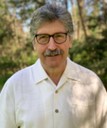 Robert Raleigh, PhD, is the founder and managing director of PathSight Predictive Science, a six-year-old company focused upon understanding and influencing the human interface on today’s complex globally connected human network. This work is built upon insights from the fields of data, neural and behavioral sciences. PathSight runs counter to the impulse to reduce behavioral change to a short list of magical variables. PathSight embraces the complexity of the task by deploying a multi-layered model of individuals. The uniqueness of the PathSight Model is found in its capacity to sort people by their non-verbal, biologic instincts that informs their personal identities and their orientation toward the world. PathSight views behavior change as a process that accounts for personal, contextual and situational narratives to achieve predictable outcomes. PathSight is currently being deployed in the healthcare, sports, entertainment and training verticals.
Robert Raleigh, PhD, is the founder and managing director of PathSight Predictive Science, a six-year-old company focused upon understanding and influencing the human interface on today’s complex globally connected human network. This work is built upon insights from the fields of data, neural and behavioral sciences. PathSight runs counter to the impulse to reduce behavioral change to a short list of magical variables. PathSight embraces the complexity of the task by deploying a multi-layered model of individuals. The uniqueness of the PathSight Model is found in its capacity to sort people by their non-verbal, biologic instincts that informs their personal identities and their orientation toward the world. PathSight views behavior change as a process that accounts for personal, contextual and situational narratives to achieve predictable outcomes. PathSight is currently being deployed in the healthcare, sports, entertainment and training verticals.
In 2021, Simon & Schuster published Raleigh’s new book entitled, The Search for Why, a Revolutionary New Model for Understanding Others, Improving Communications and Healing Division. Raleigh graduated from Hobart & William Smith College and earned his PhD at Syracuse University.
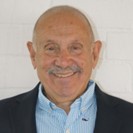 Dennis Robbins (MPH, Harvard, PhD, Boston College) has a distinguished cross-industry career that spans multiple sectors of health, wellness, healthcare, digital innovation, medical and surgical devices/ technology, publishing, entertainment, ethics and policy.
Dennis Robbins (MPH, Harvard, PhD, Boston College) has a distinguished cross-industry career that spans multiple sectors of health, wellness, healthcare, digital innovation, medical and surgical devices/ technology, publishing, entertainment, ethics and policy.
Dr. Robbins was a National Fund for Medical Education fellow, visiting scholar and research fellow at Harvard School of Public Health. He has advised presidential and White House commissions, U.S. Supreme Court cases and chaired a nationwide military health think tank. He serves/served on several advisory boards and national organizations including the American Heart Association’s Center for Technology and Innovation Board.
Dr. Robbins was a major force in the hospice movement and shaping the hospice Medicare benefit. His legacy of 11 published books and more than 400 articles and editorial board positions are complemented by a plethora of keynotes. He has been recognized on such national media publications as Forbes, Medical Economics, Modern Healthcare, Hospital Ethics and Managed Healthcare Executive. Website: www.DennisRobbins.com.
Image credit: ISTOCK.COM/MELITAS

